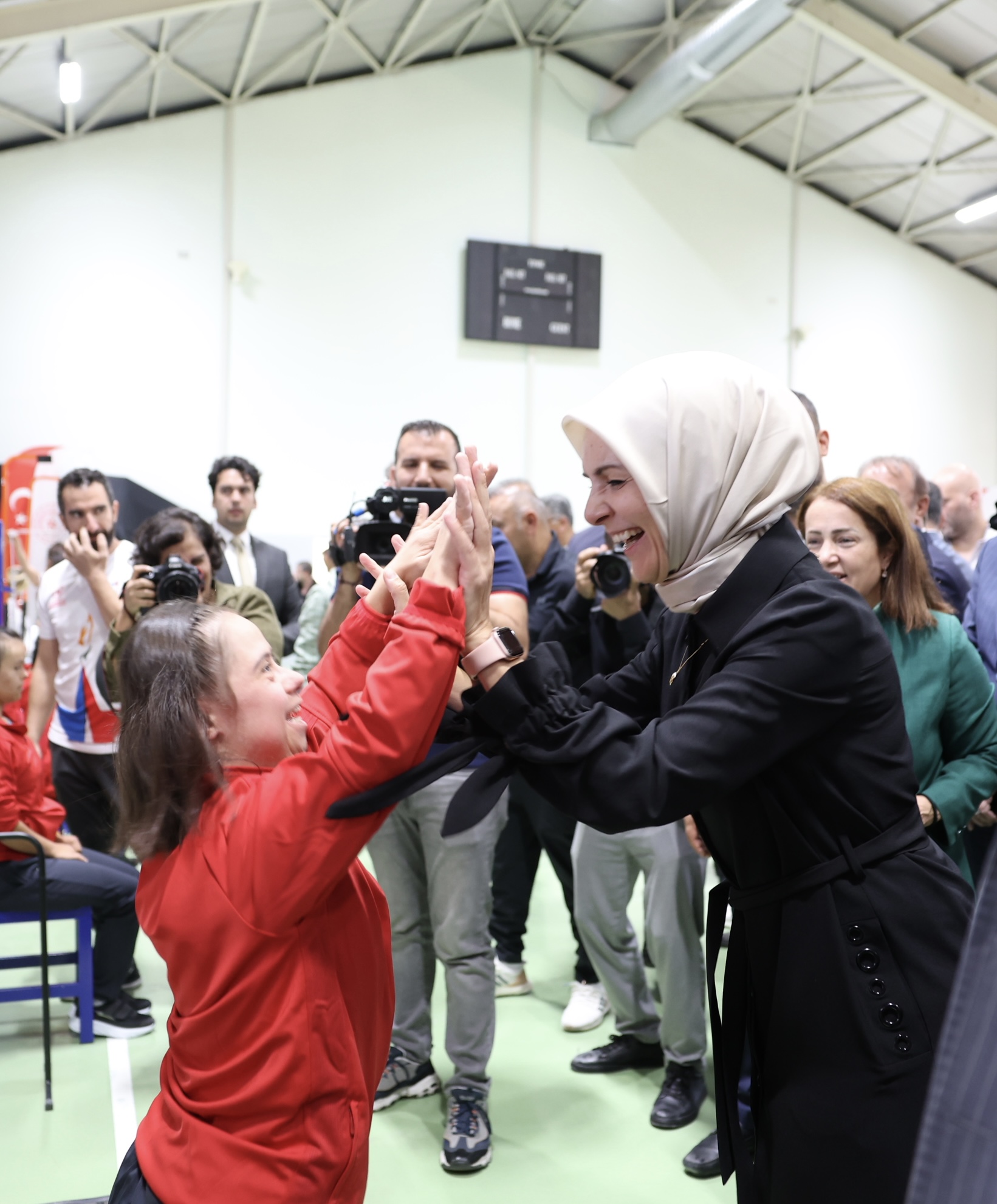Minister of Family and Social Services, Mahinur Özdemir Göktaş, announced the completion of the first year of the implementation of Turkey’s first National Action Plan for the Rights of Persons with Disabilities. As part of the process, an interim evaluation report has been prepared. She stated, “We will establish the Family-Based National Early Intervention System to monitor and support children with disabilities from birth through the early years of primary school. A pilot project will be initiated in collaboration with UNICEF and relevant public institutions.”
Minister Göktaş also recalled that the National Action Plan for the Rights of Persons with Disabilities, covering 2023-2025, started to be implemented with sensitivity by all parties following the Presidential Circular issued on February 3, 2023. “Over the first year of implementing the plan, which includes 316 activities designed to address the needs arising from disabilities in areas such as employment, accessibility, education, health, social participation, and rights protection, we have achieved significant progress. The interim evaluation report prepared under our Ministry’s coordination was shared with members of the Monitoring and Evaluation Board for the Rights of Persons with Disabilities at the meeting on May 21,” she said.
Göktaş emphasized the efforts to promote a rights-based approach and increase awareness in the field of disability over the past year. “Awareness training on the rights of persons with disabilities was organized for various groups, primarily public institutions. Progress has been made in promoting, spreading, and monitoring accessibility. Workshops were conducted to enhance the technical capacities of public institutions and organizations regarding the accessibility of the built environment, information, and communication technologies. The use of the Accessibility Logo has been expanded to include printed and digital publications and visual materials. Additionally, efforts were made to promote accessibility in different sectors such as libraries and information technology.”
The Family-Based National Early Intervention System initiative will monitor and support children with disabilities from birth to the early years of primary school. “Efforts have been undertaken to develop an early intervention system aimed at ensuring that children with special needs have access to quality care, health, protection, and education services with a comprehensive and family-focused approach from birth to the primary school age. A pilot project will be initiated in collaboration with UNICEF and relevant public institutions,” Göktaş stated.
Göktaş mentioned the development of specialized care quality standards for care centers to provide better services for individuals with disabilities living in these centers. “We aim to strengthen our institutions that provide long-term care services with these standards. We will also make incentive payments to private care centers that meet the Care Services Quality Standards to improve the quality of services offered in these centers. In the coming period, we will work on developing specialized care quality standards to guide the opening of specialized care and rehabilitation centers,” she added. Additionally, she pointed out the use of information systems to independently develop the quality information management system (KALDES) for evaluating the compliance of care centers with quality standards by following technological advancements.
Göktaş highlighted the efforts to develop disaster management services sensitive to disability. “We are implementing the ‘Development of Disaster and Emergency Plans for Institutions Providing Long-Term Care Services in the Field of Disability and Aging’ project. This project aims to develop disaster management plans tailored to the specific needs of special needs individuals. We are also working with stakeholder institutions and organizations to develop a model for disaster management sensitive to the needs of persons with disabilities and the elderly. In the coming period, we will launch efforts to make the tent cities and container cities created as part of the post-earthquake recovery efforts in the 11 provinces affected by the February 6 earthquake accessible for persons with disabilities and the elderly. We will plan rehabilitation services needed by individuals requiring care in these provinces and ensure they benefit from care models,” Göktaş concluded.
Minister Mahinur Özdemir Göktaş
Republic of Turkey Ministry of Family and Social Services
